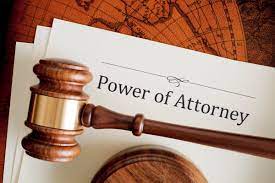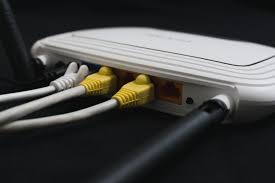
Why Do You Need a Power of Attorney
Choosing someone to act on your behalf is difficult. You want to choose a trustworthy person. You should name a primary and back-up person and clearly state how you want them to act. Make sure the person is aware of your wishes so that they can act accordingly. Then, sign the power of attorney to make it effective.
Durable power of attorney
A durable power of attorney is a document that names a person who will act on your behalf if you become incapacitated. This person will handle the day-to-day tasks that you can’t do yourself. In addition to these duties, the durable power of attorney can also name one or more backup agents who can act on your behalf if the first one becomes unavailable or unwilling to act.
The form itself is fairly simple, but you may find it helpful to get the help of a lawyer to make sure it is accurate. Although it can be expensive, a legal professional can review the document for you. You can also use a service like Rocket Lawyer that offers document review services for a low monthly fee.
Another helpful option is to use a free online software for your POA. Some software programs, such as FreeWill, provide free templates and allow you to customize them to fit your needs. You can use these templates to create a general or special power of attorney for health and finances. Once you complete the form, you will need to sign it in front of a notary and provide additional witnesses, if necessary. You should then give it to your agent and other people who are interested in your financial affairs.
If you have decided to make a durable power of attorney, you’ll need to choose a person you can trust to make decisions on your behalf. This person will act on your behalf and keep your wishes in mind, as long as they have your permission. If the agent doesn’t act in your best interest, the bank will be able to refuse them access to your accounts. If that happens, you can contact the state adult protective services for help. In extreme cases, the court may order your POA agent to return funds that are used for illegal activities. If the situation becomes severe enough, it may also result in criminal prosecution.
General power of attorney
The general power of attorney is an important document that provides authority for another person to act on your behalf. It provides instructions for decisions relating to your property, health care and finances. However, it only works when the principal is conscious and able to make decisions. It automatically expires if the principal becomes incapacitated or passes away. In cases like this, a durable power of attorney is needed.
A general power of attorney allows a principal to appoint someone who can act for them in case they are unable to do so themselves. This person could be a relative, friend, or an attorney. However, the agent must be trustworthy and reliable. They should also not abuse their authority. If they do, it is important to report this behavior to the appropriate authorities.
General powers of attorney can be divided into two types. The first is a general one, which gives the agent broad authority over financial matters. This type of power allows the agent to make decisions regarding the principal’s finances, including buying and selling real estate, transferring funds, making gifts, and investing. Alternatively, you can select a limited power of attorney, which limits the agent’s powers to particular tasks.
If you need an attorney to help you with the process of making a general power of attorney, try seeking advice from a lawyer who specializes in elder law and wills. You may also want to consider springing POA, which is similar to an immediate POA, but only takes effect when certain conditions are met.
Signing a power of attorney
Signing a power of attorney gives someone else the authority to act in your behalf in certain areas. For example, your agent will have power to buy and sell a house, but they cannot sell your bank account without your permission. This type of document can be helpful in case you become incapacitated and can’t handle your affairs. An attorney can explain the risks and benefits of signing a power of attorney. They can also ensure that the documents are properly prepared.
It is important to understand that acting as a power of attorney carries high levels of responsibility. If you abuse the power in the wrong way, you could face criminal charges and even a civil lawsuit. However, if you know what you’re doing, you’ll be able to act in the best interest of the principal. Follow the steps below to properly sign a power of attorney.
Choose the right person to serve as your agent. The person you choose to act on your behalf should be someone you trust and respect. While adult children may be the best candidates, it’s also important to choose someone who is trustworthy and capable. Choosing an adult child may be easy, but it’s not a good idea to choose your child purely because of the relationship.
Make sure that you sign the power of attorney in writing. A power of attorney is a legal document that outlines the rights and responsibilities of the agent. It lasts until it is revoked in writing. If you wish to revoke it at a later date, you’ll need to notify the institution.


